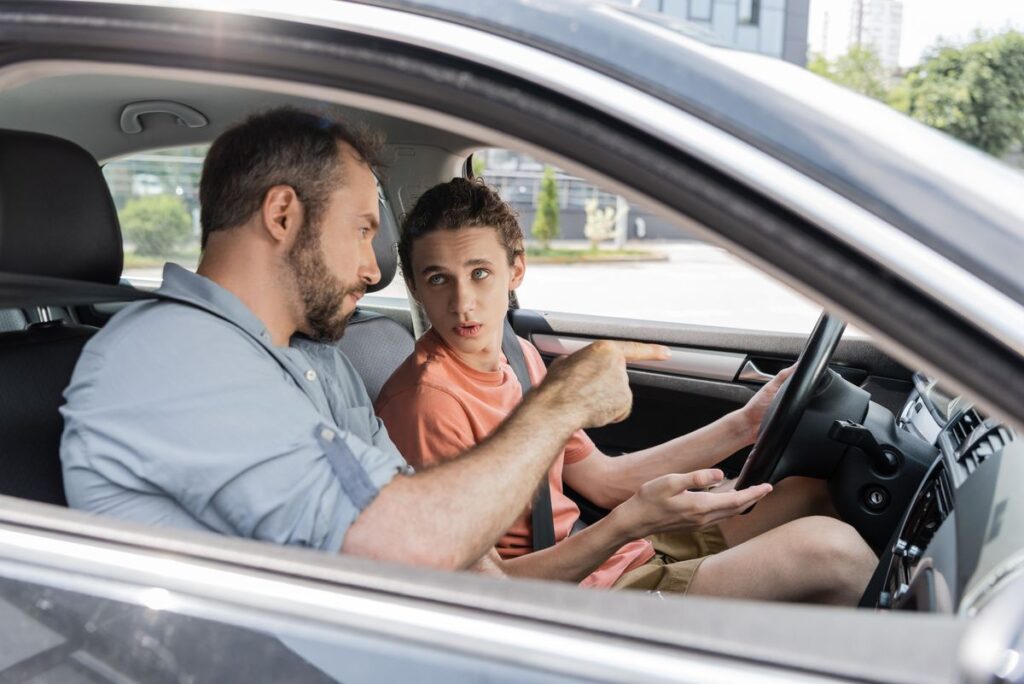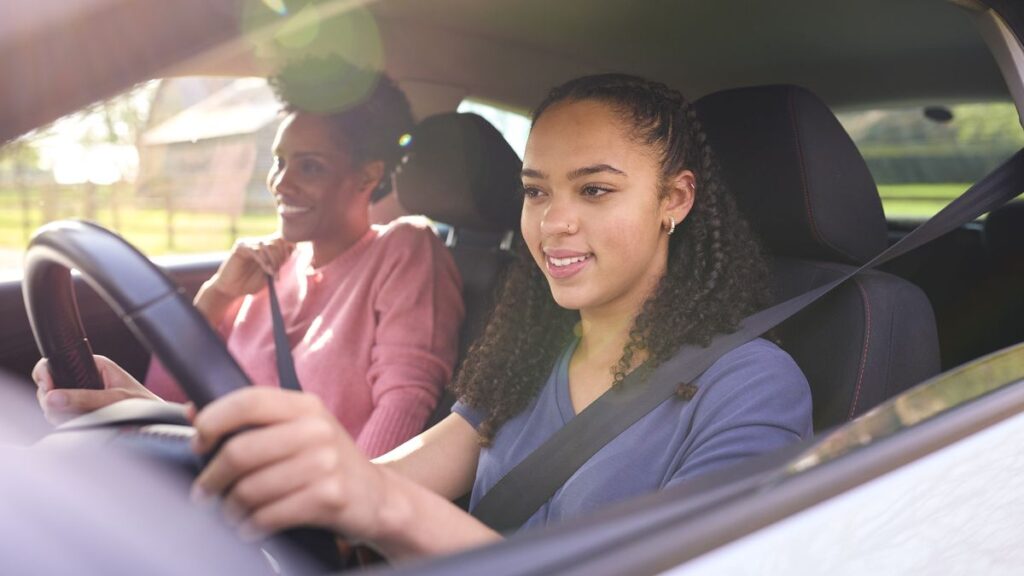Car accidents involving minors in Georgia present unique challenges and considerations, both legally and emotionally. Understanding the nuances of Georgia law and the best practices for handling such situations is crucial for parents, guardians, and drivers. This comprehensive guide aims to provide valuable insights into navigating these delicate situations effectively and responsibly.
Understanding Georgia’s Laws on Accidents Involving Minors
In Georgia, an individual under the age of 18 is considered a minor. When a minor is involved in an accident, whether as a pedestrian, a passenger, or a driver, specific legal considerations come into play.
Liability and Insurance Considerations
Georgia follows the traditional fault-based system for car accidents, which applies to accidents involving minors as well. If a minor is at fault in an accident, the liability may fall on the minor’s parents or guardians, depending on the circumstances. In Georgia, parents can be held liable for their minor child’s negligent driving if the vehicle is registered in the parent’s name.
Insurance policies in Georgia typically cover all household members, including minors. However, it’s crucial to review your policy to understand the coverage limits and any exclusions that might apply to young drivers.
Special Protections for Minor Victims
When a minor is a victim in an accident, Georgia law provides certain protections. For instance, the statute of limitations for personal injury claims is extended for minors. While adults have two years to file a claim, a minor has until two years after their 18th birthday to pursue a claim for injuries sustained in an accident.

Steps to Take Immediately After an Accident Involving a Minor
Ensure Safety and Seek Medical Attention
The first priority is to ensure the safety of all parties involved in the accident. If a minor is injured, seek medical attention immediately, even if the injuries seem minor. Some injuries, particularly in children, may not be immediately apparent.
Contact Law Enforcement
In Georgia, it’s required to report any accident involving significant property damage, injury, or death to law enforcement. The responding officer will create an accident report, which is crucial for insurance and legal purposes.
Document the Accident
If it’s safe to do so, take photographs of the accident scene, including the positions of the vehicles, any visible damage, and any relevant road signs or signals. Also, gather contact information from any witnesses.
Comforting the Minor
In the chaotic aftermath of an accident, minors often need emotional support as much as physical care. Speak to them in a calm and reassuring manner. If they are capable of understanding, explain that help is on the way and that the situation is being handled. This can help alleviate some of their anxiety and fear.
Assessing the Situation
While waiting for medical assistance, if you are qualified and it’s safe to do so, perform a basic assessment of the minor’s condition. Check for any visible injuries, ask them where they feel pain, and monitor their consciousness and responsiveness. However, avoid moving them unless there is an immediate danger, as this could exacerbate potential injuries.
Informing Parents or Guardians
If you are not the parent or guardian of the minor involved in the accident, make efforts to contact them as soon as possible. They should be informed about the accident, the location, and the condition of their child. If the minor needs to be taken to a hospital, provide the parents or guardians with the hospital’s contact information and address.
Collecting and Preserving Evidence
In addition to taking photographs, if there are any physical objects at the scene that might be relevant (such as debris from the vehicles, skid marks on the road, or damaged personal belongings), document them as well. This evidence can be crucial in piecing together how the accident occurred.
Notifying Insurance Companies
After ensuring the immediate safety and health concerns are addressed, contact your insurance company to report the accident. Be factual in your report, and avoid speculating about fault or liability. Remember that insurance companies will use the information you provide in processing any claims related to the accident.
Following Up on Medical Care
After initial medical treatment, follow up with additional healthcare as recommended by medical professionals. This may include visits to a pediatrician, specialists for specific injuries, or mental health professionals if there are signs of trauma or anxiety following the accident.
Keeping Records
Maintain a file of all documents related to the accident and the minor’s medical care. This should include copies of the police report, medical records, receipts for any expenses incurred due to the accident (like medical bills or costs for repair of property damage), and any correspondence with insurance companies.
Legal Consultation From A Car Accident Lawyer
Consider consulting with a personal injury attorney at Rebecca Kay Sapp Law Firm. We can provide guidance on any legal steps that may need to be taken, especially if there are complexities regarding liability or if the minor has sustained significant injuries.
Legal Proceedings Involving Minors
Representation and Settlements
Minors cannot legally negotiate or sign settlement agreements in Georgia. Any settlement reached on behalf of a minor must typically be approved by a court to ensure it’s in the minor’s best interest. This process often involves a conservatorship, where a court-appointed conservator manages the settlement funds until the minor reaches adulthood.
Court Approval for Settlements
In Georgia, settlements involving minor victims often require court approval, especially when the settlement amount is substantial. This process is designed to protect the minor’s interests. The court will review the settlement terms, including attorney fees and the allocation of funds, to ensure fairness.
Insurance Claims Involving Minors
Navigating insurance claims involving minors can be complex. When a minor is at fault, the claim is typically handled through the parent’s or guardian’s auto insurance policy. When a minor is the victim, the claim may involve the at-fault party’s insurance carrier. In either case, it’s advisable to consult with an insurance agent or a legal professional to understand the implications and ensure proper handling of the claim.

Tips for Parents and Guardians
Educating Minor Drivers
For parents of teen drivers, education and training are key. Georgia’s Teenage and Adult Driver Responsibility Act (TADRA) is a graduated driver’s license program for teen drivers aged 15 to 18. This program includes stages for learners permits, intermediate licenses, and full licensure, each with specific requirements and restrictions.
Monitoring and Setting Rules
Setting clear rules and expectations for teen drivers is crucial. Consider implementing guidelines around curfews, passenger limits, and phone usage while driving. Monitoring apps can also be used to track driving habits and ensure safety.
Choosing the Right Vehicle
Safety should be a top priority when choosing a vehicle for a teen driver. Look for vehicles with high safety ratings and consider advanced safety features like automatic emergency braking and lane departure warnings.
Preventative Measures and Safe Driving Practices
While dealing with accidents after they occur is important, prevention is key. Parents and guardians can play a significant role in teaching minors safe driving practices.
Promoting Safe Driving Habits
Encourage minors to always wear seat belts, obey speed limits, and avoid distractions while driving. Discuss the dangers of driving under the influence of alcohol or drugs and the importance of responsible driving behavior.
Involvement in Driver’s Education
Participation in driver’s education programs can provide minors with the knowledge and skills they need to be safe on the road. These programs cover traffic laws, vehicle operation, and safe driving techniques.
Setting a Good Example
Parents and guardians should also set a good example by practicing safe driving habits themselves. Minors are more likely to follow safe driving practices if they see these behaviors modeled by adults.
Conclusion
Accidents involving minors in Georgia require careful handling due to the legal complexities and the emotional impact on families. Ensuring the safety and well-being of the minor, understanding the legal implications, and navigating insurance claims are all crucial steps. For parents and guardians, proactive measures such as educating young drivers and setting clear rules can significantly reduce the risk of accidents. Remember, the goal is not just to deal with accidents after they happen but to prevent them from occurring in the first place. By being informed, prepared, and proactive, we can better protect our young drivers and ensure their safety on Georgia’s roads.

